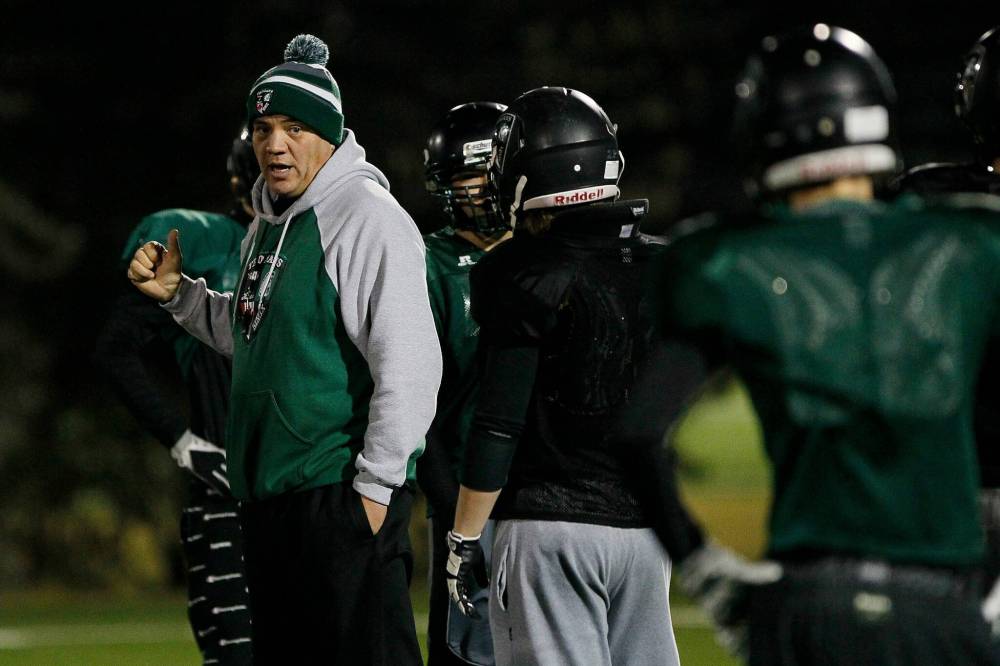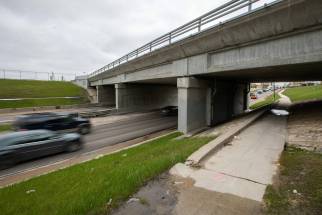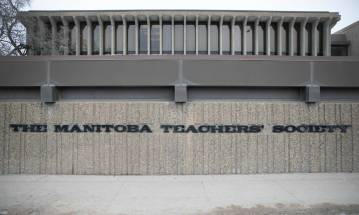Teachers’ union can’t advocate and regulate at the same time Professional college needed to ensure accountability, give parents confidence in complaint investigations
Read this article for free:
or
Already have an account? Log in here »
To continue reading, please subscribe:
Monthly Digital Subscription
$0 for the first 4 weeks*
- Enjoy unlimited reading on winnipegfreepress.com
- Read the E-Edition, our digital replica newspaper
- Access News Break, our award-winning app
- Play interactive puzzles
*No charge for 4 weeks then price increases to the regular rate of $19.00 plus GST every four weeks. Offer available to new and qualified returning subscribers only. Cancel any time.
Monthly Digital Subscription
$4.75/week*
- Enjoy unlimited reading on winnipegfreepress.com
- Read the E-Edition, our digital replica newspaper
- Access News Break, our award-winning app
- Play interactive puzzles
*Billed as $19 plus GST every four weeks. Cancel any time.
To continue reading, please subscribe:
Add Free Press access to your Brandon Sun subscription for only an additional
$1 for the first 4 weeks*
*Your next subscription payment will increase by $1.00 and you will be charged $16.99 plus GST for four weeks. After four weeks, your payment will increase to $23.99 plus GST every four weeks.
Read unlimited articles for free today:
or
Already have an account? Log in here »
Hey there, time traveller!
This article was published 20/05/2022 (1296 days ago), so information in it may no longer be current.
The case of a Winnipeg high school football coach and teacher facing criminal charges related to the exploitation and sexual abuse of students is a perfect example of why Manitoba needs a regulatory college for teachers.
Kelsey McKay, who taught phys-ed and coached football at Vincent Massey Collegiate even after allegations surfaced about abusive behaviour against students, has been charged with multiple counts of sexual assault, sexual exploitation and luring. The alleged incidents date back to 2004. School division officials say they investigated complaints against McKay after parents brought concerns forward.
Yet, he continued to teach and coach. He has been on unpaid leave since April.

The problem with the current system is there are no clear lines of accountability for teachers in Manitoba, as there are for other professions, such as doctors, nurses and lawyers. Members of those professions are subject to codes of conduct through their regulatory bodies, who certify their members.
Those organizations have the legislated responsibility to hear complaints, investigate allegations of wrongdoing and impose sanctions when required. That may include workplace conditions, suspension or even licence revocation. To ensure openness and accountability, disciplinary decisions are also published online.
That process exists for teachers in other provinces, such as Ontario, Saskatchewan and British Columbia, but not in Manitoba. Here, the Manitoba Teachers’ Society union has the dual function of representing its members in contract talks and other areas, as well as enforcing a code of conduct.
It’s a conflict of interest. An organization can’t be an advocate and a self-regulator at the same time; it doesn’t work.
An organization can’t be an advocate and a self-regulator at the same time; it doesn’t work.
Professional misconduct by teachers may be investigated by school divisions. Their findings may even be reported to the province, but it’s hit and miss.
The education minister has the authority to impose disciplinary action in some cases, but the process is inconsistent.
Also, disciplinary decisions aren’t reported publicly, as they are in some other provinces. The only time they may become public in Manitoba is if criminal charges are laid and cases are reported in the media.
A 2019 CBC report found 20 cases of teacher misconduct in Manitoba dating back to 2016, most of which involved criminal charges that related to sexual exploitation. None were reported publicly by the province.
If those cases occurred in Ontario, the cases could have been investigated and dealt with by the Ontario College of Teachers. The details of each case, including any penalties imposed, would have been available on the organization’s website.
The Stefanson government is considering creating a regulatory body that would certify teachers. That’s good news. The establishment of a Manitoba College of Educators was one of the recommendations in the province’s 2020 external review of public schools.
Education Minister Wayne Ewasko last month reiterated his government’s support for a proposed college when he unveiled the province’s latest plans for education reform.
The union position is that the most egregious cases are made public when they end up in court. It’s a flawed argument. Waiting until teacher misconduct results in criminal charges is too late. Besides, some may not result in criminal charges.
The teachers’ union doesn’t like it. It wants to keep its dual function of advocate and regulator. The union has said in the past nothing good could come from publishing disciplinary actions against teachers.
That’s wrong. Making those findings public is necessary to protect children by ensuring openness and transparency in the system.
The union position is that the most egregious cases are made public when they end up in court. It’s a flawed argument. Waiting until teacher misconduct results in criminal charges is too late.
Besides, some may not result in criminal charges. If a teacher, for example, sends inappropriate text messages or emails to a student off-hours (which can lead to even worse behaviour), it’s not necessarily grounds for a police investigation.
Right now, parents don’t have clear recourse. Taking it to the school principal or the school division may or may not lead to a thorough investigation. There are also no reliable, consistent and transparent rules guiding the process, as was evident in the McKay case.
Allegations of teacher misconduct must be dealt with early, to nip potentially harmful behaviour in the bud. It must also be made public. An independent regulatory body is the only way to do that.
tom.brodbeck@freepress.mb.ca

Tom has been covering Manitoba politics since the early 1990s and joined the Winnipeg Free Press news team in 2019.
Our newsroom depends on a growing audience of readers to power our journalism. If you are not a paid reader, please consider becoming a subscriber.
Our newsroom depends on its audience of readers to power our journalism. Thank you for your support.










